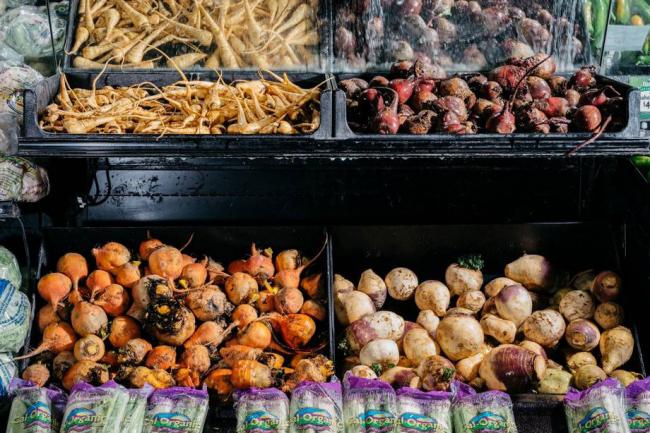
UN agriculture agency stresses role of trade in food security and climate change adaptation
“Low food prices reduce the incomes of farmers, especially poor family farmers who produce staple food in the developing countries. This cut in the flow of cash into rural communities also reduces the incentives for new investments in production, infrastructure and services,” said José Graziano da Silva, the Director-General of the UN Food and Agriculture Organization (FAO), at a high-level meeting on agricultural commodity prices in Rome.
The Director-General noted that globally, food prices are believed to be back to their long-term downward trend in real terms, as supply growth outpaces demand. This follows the price surges experienced during 2008-2012, and a prolonged period of volatility in food markets.
He underscored the need to consider the current decline in agricultural commodity prices in the context of the international community's efforts to achieve the 2030 Agenda and the Sustainable Development Goals (SDGs).
In a video address to the meeting, World Trade Organization (WTO) Director-General Roberto Azevêdo said that under the right circumstances, trade provides people with opportunities to join global markets and helps to create incentives for producers to invest and innovate.
The “historic decision” struck in Nairobi in December 2015 by WTO members to eliminate agricultural export subsidies will “help level the playing field in agriculture markets, to the benefit of farmers and exporters in developing and least-developed countries,” according to Azevêdo.
For his part, Graziano da Silva pointed to the potential of trade in contributing to global food security and better nutrition, specifically underlining its potential role as an “adaptation tool” to climate change – countries that are projected to experience decreasing yields and production due to climate change will have to resort to the global markets to feed their populations.
But the Director-General also noted that increased openness to trade can also bring risks. If not well managed, it “can undermine local production and consequently the livelihoods of the rural poor,” he said.
The elimination of agricultural export subsidies that affect prices in global markets could be one way to improve trade so that it benefits small farmers in developing countries and creates prosperity in rural areas, he added.
With demand representing one of the most powerful drivers of food prices, an essential way to make these more remunerative for producers, yet affordable for consumers, is to promote and strengthen targeted social protection programmes and other schemes such as food vouchers, the FAO Director-General said.
“The aim of these policies is to build a virtuous cycle of local production and local consumption,” said Graziano da Silva.
To succeed, such measures need strong collaboration between the institutions responsible for agriculture, rural development, trade, the environment, nutrition, health and social security, he noted.
To better develop future scenarios on the long-term behaviour of agricultural commodity prices, he highlighted that FAO seeks to boost its modelling systems to better understand possible price swings and changes in trends and assist countries to formulate appropriate policies.
The OECD-FAO Agricultural Outlook, a joint publication of FAO and the Organisation for Economic Co-operation and Development (OECD), points out the high probability that over the next 10 years, some abrupt price surges may occur, mainly as a result of climate change.
Photo: FAO/Benjamin RasmussenQ
Source: www.justearthnews.com
Support Our Journalism
We cannot do without you.. your contribution supports unbiased journalism
IBNS is not driven by any ism- not wokeism, not racism, not skewed secularism, not hyper right-wing or left liberal ideals, nor by any hardline religious beliefs or hyper nationalism. We want to serve you good old objective news, as they are. We do not judge or preach. We let people decide for themselves. We only try to present factual and well-sourced news.







